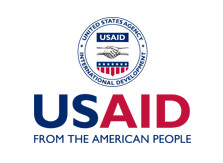Reproductive Health /
Family PLanning:
Promoting family planning and quality reproductive health
Despite Nigeria’s wealth of natural and human resources, the nation’s primary health care systems have been in decline for more than a decade. This is a result of many factors, including poor coordination among different levels of government, inefficient management, substandard health infrastructure, weak professional standards, and inadequately trained health providers. In the area of reproductive health, this has a number of consequences, including high rates of HIV/AIDS, infant, and maternal mortality.
Seeking to reverse this decline in health care delivery, COMPASS works with local governments, health-care providers, and communities to improve the reproductive health of millions of Nigerians. COMPASS aims to strengthen reproductive health services by improving quality, increasing demand, and expanding access to hard-to-reach communities.
COMPASS’ reproductive health interventions address the following components:
- Safe Motherhood: Strengthening antenatal care, labor and delivery, and postpartum care;
- Family Planning: Addressing the unmet need for family planning through optimal birth spacing and use of permanent and long-term methods of contraception;
- Postabortion Care: Providing emergency treatment of complications from unsafe abortion, offering counseling and post abortion family planning, and referring for other reproductive health services;
- Youth-Friendly Services: Using culturally sensitive approaches to respond to the reproductive and sexual health needs of youth;
- HIV/AIDS: Preventing Mother-to-Child Transmission of HIV (PMTCT) by creating referral systems for antenatal care and delivery at PMTCT facilities, providing family planning to HIV positive women and integrating reproductive services with HIV/AIDS programming;
- Men's Roles in Reproductive Health: Including men in reproductive health discussions and encouraging their participation in decisions involving their partner's reproductive health; and
- Gender-Based Violence: Emphasizing community commitment to address gender-based violence and working with health facility staff to recognize it as a health problem affecting women’s reproductive health outcomes.
Approach to Implementation >>
|
